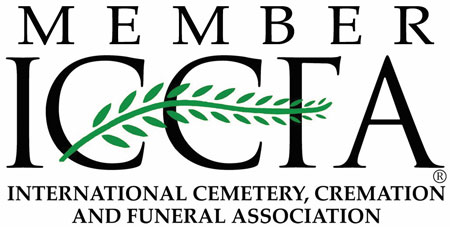Our loved one is dying
What do we do to prepare?
'If one member suffers in the body of Christ which is the church, all the members suffer with that member.' 1 Corinthians 12:26
Please allow us to express compassion for the difficult time you and your family are experiencing. The following are some recommendations to help you obtain the spiritual assistance your loved one and family will need as you navigate this time of preparation. First, if you are Catholic and you are sick or dying, or if you are supporting a Catholic who is very ill, it is important to contact your local parish. Do this sooner rather than later. Don’t be shy or embarrassed or worry if you have been distant from the Church. Your parish community will want to support you, each parish community will have their own unique ministries and practices in place for taking care of your loved one and family's spiritual needs at this time.
Click here for a list of Catholic Parishes
Kelowna Catholic Chaplaincy 24 Hour On Call: 250-878-1502
Springfield Funeral Home 24 Hour On Call: 250-860-7077
Here are some suggestions to support the Spiritual needs of your loved one during their illness:
Prayers for the Sick: Have your loved one’s name added to the prayers for the sick to the daily and Sunday masses intentions, as well in a parish bulletin.
Eucharist: Communion may be arranged to be brought to your loved one.
Anointing: Arrange for a priest come to the hospital, care facility or their home to have the Anointing of Sick, Last Rites and Viaticum administered.
Visits from the Priest: If appropriate and available ask your parish priest to make visits to your loved one to assist them in this time of preparation.
Register as a Catholic: make sure you register your loved one in the hospital, care facility or hospice as a Roman Catholic; by doing so Catholic ministries operating in those facilities will be notified that your loved one is Catholic.
Church Groups: Notify any church groups your loved one may be a member of (i.e.: Catholics Women’s League, the Knights of Columbus, St. Vincent de Paul, Third Order Franciscans. These groups will also include your loved one and family in their daily prayers and good works.)
Understanding Confession, Anointing of the Sick and Viaticum
The Sacrament of Reconciliation
Many Catholics know the Sacrament of Reconciliation as Confession since it involves the disclosure or confession of sins to a priest. The Sacrament of Reconciliation is the most important way that a Catholic can make peace with God and receive his or her forgiveness and inner healing. It also helps you to come to terms with the past and to heal your relationships with others.
Anointing of the sick
This sacrament is offered to people who are dying, and to those who are seriously ill, facing a serious operation, or who are simply very frail due to old age.
The priest prays over you and anoints your forehead and hands with holy oil. It brings a special gift of the Holy Spirit that gives spiritual strength, helping you to bear the trials of sickness with more confidence and trust.
It unites the person with Jesus Christ in his suffering and helps them to pray with and for the whole Church. It brings forgiveness and prepares them for their final journey towards God. In some cases, if it is God’s will, it can bring health and healing.
Holy Communion and Viaticum
Catholics believe that at Mass bread and wine become the Body and Blood of Christ. This gift is known as Holy Communion. If you are unable to get to Mass, a priest or Extraordinary Minister can bring you Communion at home.
But when you are dying, the spiritual food of Holy Communion takes on a special significance. It becomes “food for the journey” (Viaticum in Latin), a seed of eternal life and a foretaste of the Resurrection.
As Jesus said: “He who eats my flesh and drinks my blood has eternal life, and I will raise him up on the last day.”
Medical Assistance In Dying (M.A.i.D.)
Learn more about the Catholic teaching from the Bishops of British Columbia, Yukon, Alberta and Northwest Territories in calling on Catholics to oppose any expansion of assisted suicide. The letter attached reflects their concerns of assisted suicide and euthanasia in Canada.
Typical Funeral Flowchart
This flowchart will assist families with next steps if their loved one is seriously ill, nearing death or if death has occurred.
Springfield Funeral Home
Disclaimer: Every effort has been made to ensure the information in these pages is accurate and in accordance with the teachings of the Church and/or the customs and practices of the local church, specifically the Diocese of Nelson. Springfield Funeral Home does not represent or speak on behalf of the Diocese of Nelson. Please defer to the directive of the local ordinary or to the Pastor of the parish if there is a discrepancy of information contained in these pages. Local parishes may have their own traditions, requests and/or resources. We would appreciate to be notified of any errors, whether liturgical or grammatical in nature. Please send any such notices to contact@springfieldfuneralhome.com.




